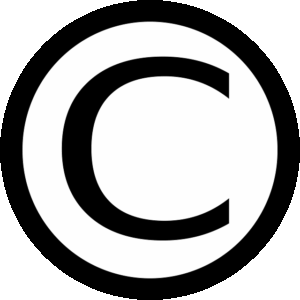Precision UK IP Document Translation: Navigating Legal Landscape
Intellectual Property (IP) documents require specialized translation services for international protection and validity. UK translators skilled in both languages and IP laws ensure precision, maintaining legal integrity across borders. Best practices…….

Intellectual Property (IP) documents require specialized translation services for international protection and validity. UK translators skilled in both languages and IP laws ensure precision, maintaining legal integrity across borders. Best practices include engaging expert translators, using advanced tools, and peer review for high-quality translations. Choosing a reputable provider with proven records ensures accurate, reliable service tailored to complex IP needs, driving industry evolution through tech innovation.
“Intellectual Property (IP) documents are a vital part of any UK-based business, yet their intricate nature poses challenges when it comes to international communication. This article explores the precision required in translating UK IP documents, highlighting the significance of accurate interpretation for legal protection and global market access. We delve into the unique complexities, best practices, and future trends, emphasizing the importance of specialized UK IP document translation services for businesses aiming to navigate the global landscape.”
- Understanding Intellectual Property (IP) Documents in the UK
- The Significance of Accurate Translation for IP
- Challenges in Translating IP Documents
- Best Practices for UK IP Document Translation Services
- Choosing the Right Translation Provider for Your IP Needs
- Future Trends in UK IP Document Translation
Understanding Intellectual Property (IP) Documents in the UK

Intellectual Property (IP) documents are a vital part of any business operating within the United Kingdom, as they safeguard innovative ideas and creations. These documents can include patents, trademarks, copyrights, and design rights, each serving a unique purpose in protecting intellectual assets. The UK has a robust legal framework for IP protection, making it essential for businesses to understand and comply with these regulations.
When dealing with international operations or expanding into new markets, accurate translation of IP documents becomes crucial. Specialized UK translation services that focus on Intellectual Property documentation are equipped to handle the precision required. These services employ translators who not only possess expertise in language but also have a deep understanding of IP laws and terminologies specific to the UK, ensuring that translated documents remain legally sound and effective in protecting intellectual property across borders.
The Significance of Accurate Translation for IP

In the realm of Intellectual Property (IP) documentation, precision in translation is paramount. Accurate UK IP document translations are not merely about converting words from one language to another; they ensure that the essence, nuances, and legal validity of the original content are preserved. Given the intricate nature of IP laws and their global reach, a mistranslation could lead to misunderstandings, misrepresentations, or even legal complications.
Professional UK translation services specializing in intellectual property documents play a pivotal role in facilitating seamless communication across borders. These experts not only possess a deep understanding of both languages but also have a grasp of the specific terminology and legal frameworks involved. By leveraging advanced tools and continuous professional development, they deliver translations that are not just grammatically correct but also conceptually faithful to the source material, thereby protecting the interests of inventors, researchers, and businesses operating in the UK and internationally.
Challenges in Translating IP Documents

Translating Intellectual Property (IP) documents requires a deep understanding of legal jargon and specialized terminology, which can pose significant challenges. These documents often contain intricate details about inventions, patents, copyrights, and trademarks, demanding accuracy and precision in translation. The complexity lies not only in the technical terms but also in the fact that IP laws vary across jurisdictions, making it crucial to render the documents in a way that complies with UK regulations.
UK translation services specializing in IP documentation must navigate this intricate landscape, ensuring that the translated content is not just linguistically correct but also legally sound. The process involves meticulous research, staying up-to-date with legal advancements, and adhering to strict ethical standards. Accurate translations are essential to protect the rights of inventors, researchers, and businesses, as well as to facilitate international collaboration and market access for UK-based IP owners.
Best Practices for UK IP Document Translation Services

When it comes to UK intellectual property (IP) document translation services, precision is paramount. To ensure accurate and reliable translations, several best practices should be followed. Firstly, engage professional translators with a deep understanding of both legal and technical jargon specific to IP documents. This expertise guarantees that complex terms are conveyed accurately in the target language. Secondly, conduct thorough linguistic and cultural assessments to account for regional variations and ensure the translated documents resonate with the intended audience.
Additionally, utilizing state-of-the-art translation memory tools can significantly enhance consistency across multiple projects. These technologies store previously translated segments, allowing translators to maintain terminology accuracy and streamline the process. Remember that peer review is crucial; having a second set of eyes on the translation can catch nuances missed by the original translator, leading to more precise and high-quality outcomes.
Choosing the Right Translation Provider for Your IP Needs

When it comes to translating UK Intellectual Property (IP) documents, precision is paramount. You need a translation service that understands the nuances of legal and technical language, as well as the unique requirements of IP documentation. Look for providers with expertise in this specific field who can offer native-level accuracy and fluency in both the source and target languages.
Reputation matters too. Opt for companies with a proven track record, client testimonials, and certifications like ISO 17100 or equivalent standards. This ensures they adhere to quality management processes, guaranteeing consistent and reliable translations tailored to your IP needs.
Future Trends in UK IP Document Translation

The future of UK intellectual property (IP) document translation looks set to be shaped by technological advancements and a growing demand for specialized services. With the ever-increasing globalisation of businesses, there is a rising need for accurate and efficient translation of complex IP materials, such as patents, trademarks, and copyrights. This trend is likely to drive the industry towards more sophisticated machine translation tools and post-editing processes.
Automation will play a significant role in enhancing speed and cost-effectiveness. Advanced AI models can handle initial translations, while human translators with expertise in IP law and terminology will remain indispensable for quality assurance and post-editing tasks. This hybrid approach promises to deliver precise, locale-specific translations, catering to the unique requirements of UK IP documents. Moreover, the integration of machine learning algorithms could enable dynamic term base updates, ensuring consistent and up-to-date translations across various projects.
Accurate translation of Intellectual Property (IP) documents is vital for navigating the complex landscape of UK intellectual assets. With growing global collaboration, reliable and precise UK IP document translation services are essential for protecting and commercializing innovations effectively. By following best practices and choosing experienced providers, businesses can ensure their IP strategies remain robust and competitive in an ever-changing world. Future trends suggest increased automation and advanced technologies will further enhance these critical translation processes.






